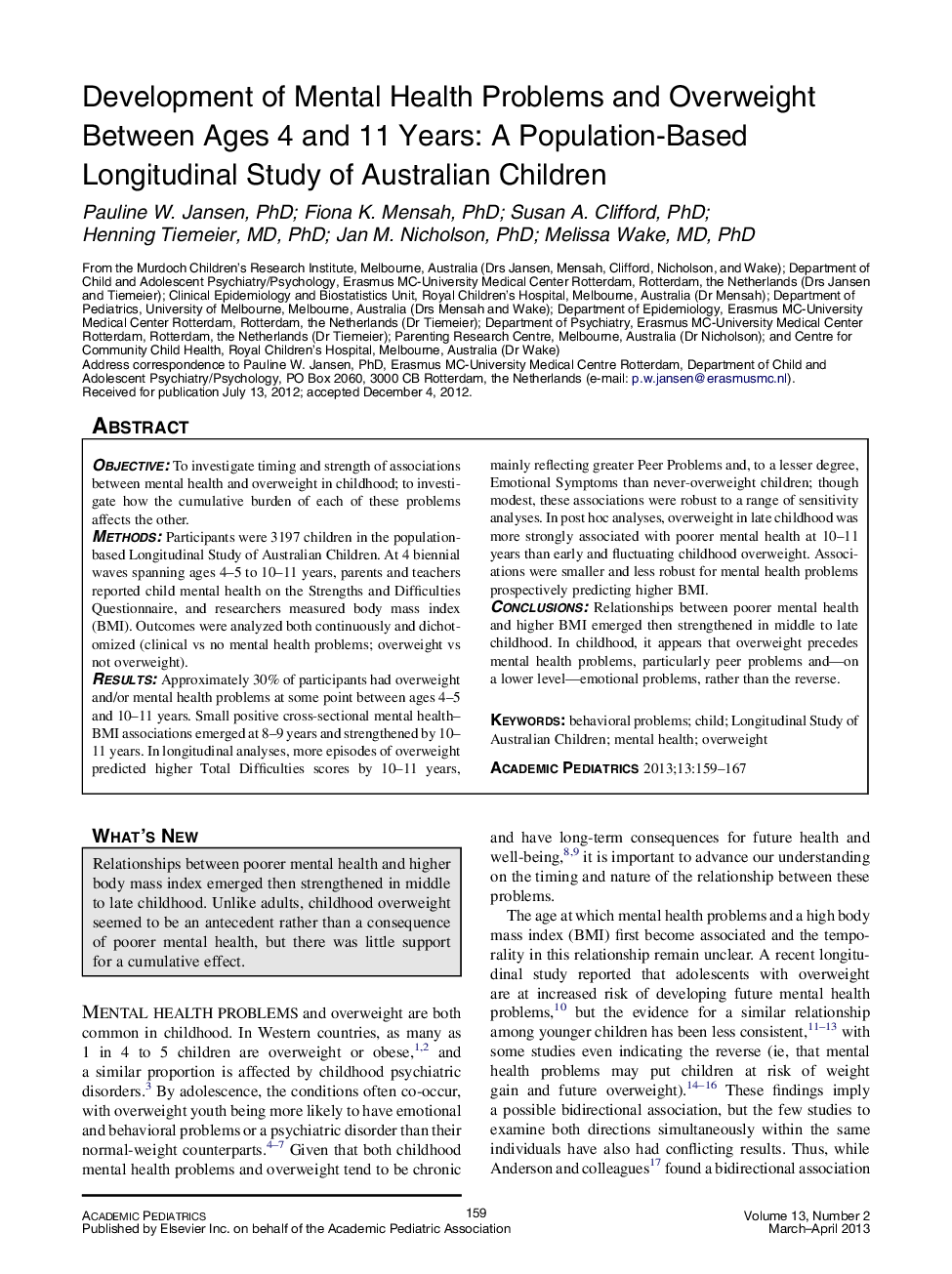| Article ID | Journal | Published Year | Pages | File Type |
|---|---|---|---|---|
| 4139808 | Academic Pediatrics | 2013 | 9 Pages |
ObjectiveTo investigate timing and strength of associations between mental health and overweight in childhood; to investigate how the cumulative burden of each of these problems affects the other.MethodsParticipants were 3197 children in the population-based Longitudinal Study of Australian Children. At 4 biennial waves spanning ages 4–5 to 10–11 years, parents and teachers reported child mental health on the Strengths and Difficulties Questionnaire, and researchers measured body mass index (BMI). Outcomes were analyzed both continuously and dichotomized (clinical vs no mental health problems; overweight vs not overweight).ResultsApproximately 30% of participants had overweight and/or mental health problems at some point between ages 4–5 and 10–11 years. Small positive cross-sectional mental health–BMI associations emerged at 8–9 years and strengthened by 10–11 years. In longitudinal analyses, more episodes of overweight predicted higher Total Difficulties scores by 10–11 years, mainly reflecting greater Peer Problems and, to a lesser degree, Emotional Symptoms than never-overweight children; though modest, these associations were robust to a range of sensitivity analyses. In post hoc analyses, overweight in late childhood was more strongly associated with poorer mental health at 10–11 years than early and fluctuating childhood overweight. Associations were smaller and less robust for mental health problems prospectively predicting higher BMI.ConclusionsRelationships between poorer mental health and higher BMI emerged then strengthened in middle to late childhood. In childhood, it appears that overweight precedes mental health problems, particularly peer problems and—on a lower level—emotional problems, rather than the reverse.
